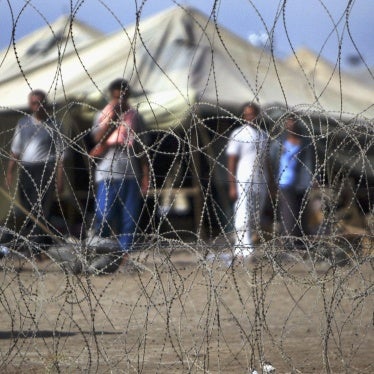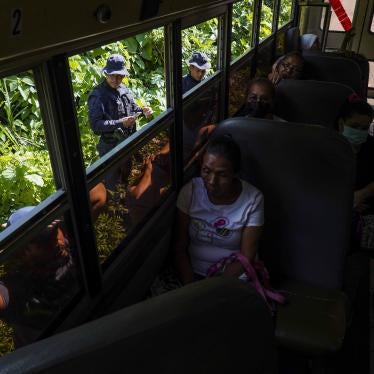Colombia's military and its Washington admirers claim that the most abusive army in the hemisphere has turned over a new leaf. Soldiers, they say, have purged human rights violators within their ranks and are pursuing the paramilitaries that have converted much of the country into a killing ground.
A billion dollars rides on the point. A jittery Clinton administration fears Colombia's elected leaders are fumbling a bid for peace. Meanwhile, cocaine pours out of territory ceded to Marxist guerrillas more intent on seizing power than negotiating. Only massive military aid, the argument goes, will save Colombia from falling to "narco-guerrillas" - a term coined by a U.S. ambassador in the 1980s. On the table is training assistance for several thousand troops and at least $1 billion in security assistance. With the death recently of five American soldiers, the costs are clearly more than financial.
Colombia is a mess, it's true. But will pumping money into its army now bring peace? Not until the army breaks long-standing ties to the civilian shock troops known as paramilitaries.
For decades, Colombia's security forces, particularly the army, have used these paramilitaries to fight the hemisphere's dirtiest war. Their methods are simple and brutal. When I interviewed Colombia's most notorious paramilitary leader, Carlos Castano, three years ago, he was unapologetic about murdering teachers, town council members, farmers, children, bus drivers, market vendors, and even a priest. "Most of the people who fall are guerrillas or their base of support," he assured me. "When we take one out, we know we are saving many more who would have been killed in the future."
Mr. Castano's forces are believed responsible for half of the 196 massacres registered by authorities in 1998. Most victims were civilians, not combatants, killed in cold blood and often mutilated. Repeatedly, observers - government investigators, human rights groups, church officials, even police - report that paramilitaries acted with the tolerance and on some occasions open support of the army.
Colombian Gen. Fernando Tapias says that his forces no longer work with paramilitaries and punish officers who engage in atrocities. But there is sparse evidence to support his claim. Only after sustained international pressure did President Andres Pastrana on April 9 finally cashier Gens. Rito Alejo del Rio and Fernando Millan, each facing trial for alleged support for paramilitary atrocities. This long-awaited action was bitterly opposed by army commander Gen. Jorge Mora and has yet to lead to a broader purge.
Gen. Mora continues to shield officers who violate human rights, such as Gen. Jaime Uscategui. For five days in 1997, Gen. Uscategui ignored pleas from a judge in Mapiripan as Mr. Castano's men shot and hacked their way through 30 people. According to prosecutors, soldiers under Gen. Uscategui's direct command had actually helped the paramilitaries unload their weapons at the air base where the United States kept most of its drug-fighting airplanes.
Instead of clapping Gen. Uscategui in irons, the army is maneuvering to keep his case before a military tribunal, whose notorious tolerance of human rights abuses has demonstrated beyond doubt its inability to render justice.
To be sure, dozens of low-ranking soldiers accused of murder and torture have been handed over to civilian courts for trial. Meanwhile, their superiors, who order, plan, and facilitate atrocities, face, at most, a rap on the knuckles. Several, like Gen. Uscategui, have even been rewarded with promotions. According to the Colombian military's own statistics, no high-ranking officer has ever faced trial in a civilian court for a human rights violation.
The recent reform of the military penal code failed to address the problem, including the ability of officers to elude responsibility by arguing that they were simply following orders. Meanwhile, paramilitaries commit massacre after massacre under the nose of an accommodating army.
Certainly, Mr. Pastrana needs the support of the international community to wrest peace from the hounds of war at his country's heels. A modern, law-abiding military must be a part of that peace.
But it is much too early for the United States to climb into bed with a force that continues to violate human rights - or which tolerates those who do. No aid should be sent to units and officers that engage in or support such tactics. And before a penny of the proposed "emergency" package of $1 billion is considered, the United States must demand clear, measurable progress against the paramilitaries, including the arrest of key leaders, a purge of tarnished officers - and the adoption of clear mechanisms to investigate and punish human rights abuses. There must also be a credible plan to combat paramilitary forces in the field.
Without these guarantees, the United States risks complicity in atrocities, covering its eyes and ears to the pleas of Colombia's civilians.








